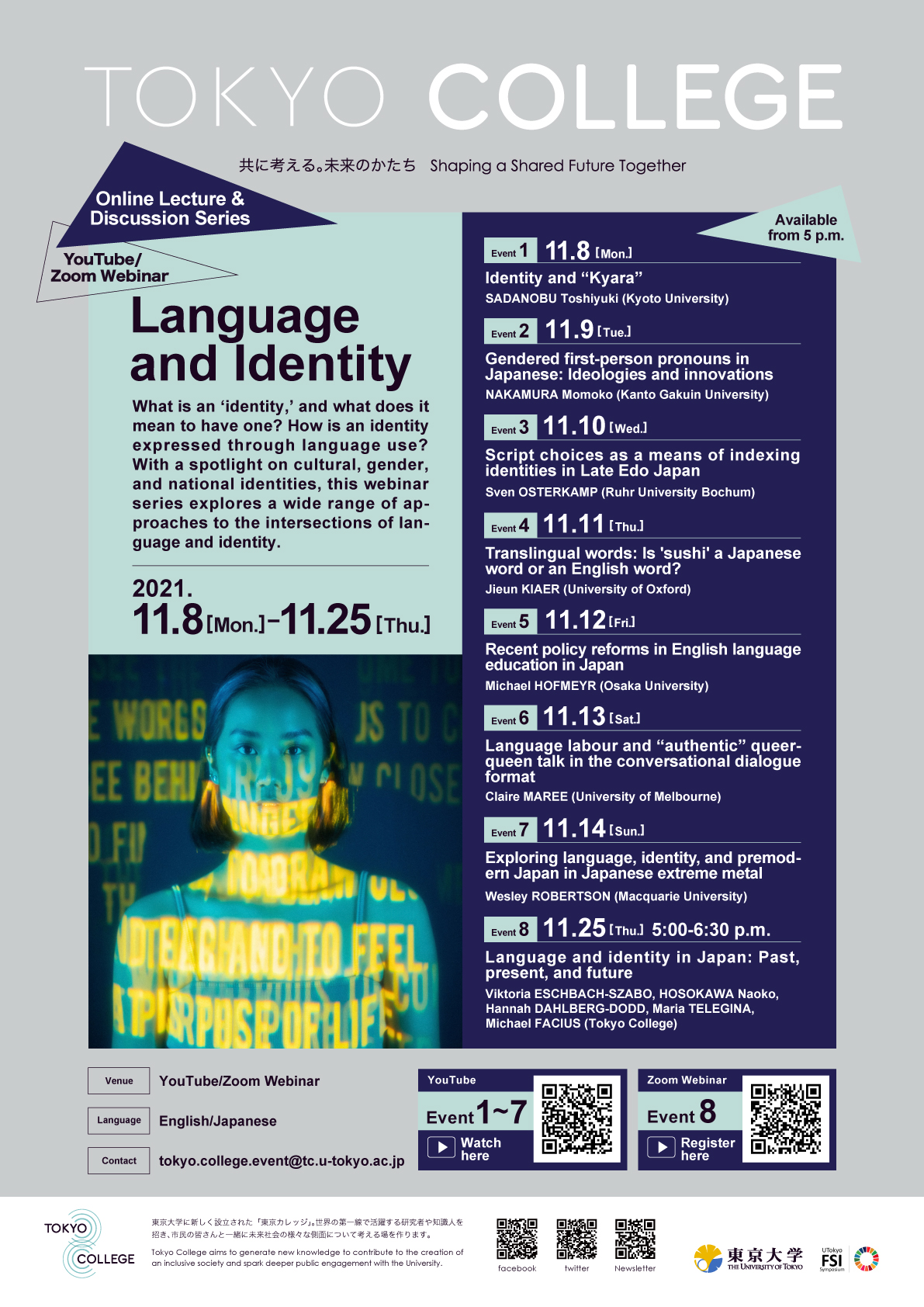Language and Identity Series Session 7: “Screams of Slaughter, Superstition, and Samurai: Exploring Language, Identity, and Premodern Japan in Japanese Extreme Metal”

| Date(s) | Sunday, 14 November 2020 (available from 17:00 JST) |
|---|---|
| Venue | |
| Language | English (with Japanese simultaneous interpretation) |
| Abstract |
Extreme metal shares similarities to hip-hop in being a globe-spanning subculture that places extreme importance on issues of language and identity. Both scenes are well noted for over 40 years of world-wide popularity, distinct fashion choices, and the use of specific language forms as a way to produce locally valued affects and identities. However, while sociolinguists have long recognized the global hip-hop scene as a vital source for examining how “imported” musical scenes influence language use and identity construction, there has been little parallel work on extreme metal to date.
In this presentation, Dr. Wesley ROBERTSON addresses this lack of sociolinguistic attention to extreme metal by looking at how and why three Japanese extreme metal bands explore Japan’s (imagined) history, myths, and language throughout their lyrics. Through combining critical analysis of the lyrics of the Japanese bands Gotsu Totsu Kotsu, Rakshasa, and Allegiance Reign with stimulated-recall interviews with their lyricists, he compares and contrast their methods and motives for examining pre-modern Japan. In doing so, he evidences that while all three bands share some overlap in the stories they tell and language forms they use, they are neither imitating one another or simply blindly adopting practices recognized in the “folk metal” scene. Rather, each artist draws upon distinct language forms and stories from Japan’s (linguistic) history to accomplish distinct goals, respond to distinct challenges, and participate in at times conflicting dialogues about what it means to be “metal”. Furthermore, by analyzing the artists’ motives for selecting or avoiding certain language forms, he also explores how their lyrics work to expand the indexical referents of once “local” items, transforming items normally treated as index of “dead” speakers into markers of contemporary local and global identities. |
| Program |
Speaker: Wesley ROBERTSON (Lecturer of International Studies, Department of Media, Communications, Creative Arts, Language and Literature, Macquarie University)
Commentator: Hannah DAHLBERG-DODD (Project Researcher, Tokyo College)
Moderator: Michael FACIUS (Associate Professor, Tokyo College) |
| Organized by | Tokyo College, The University of Tokyo |
| Contact | tokyo.college.event@tc.u-tokyo.ac.jp |
















